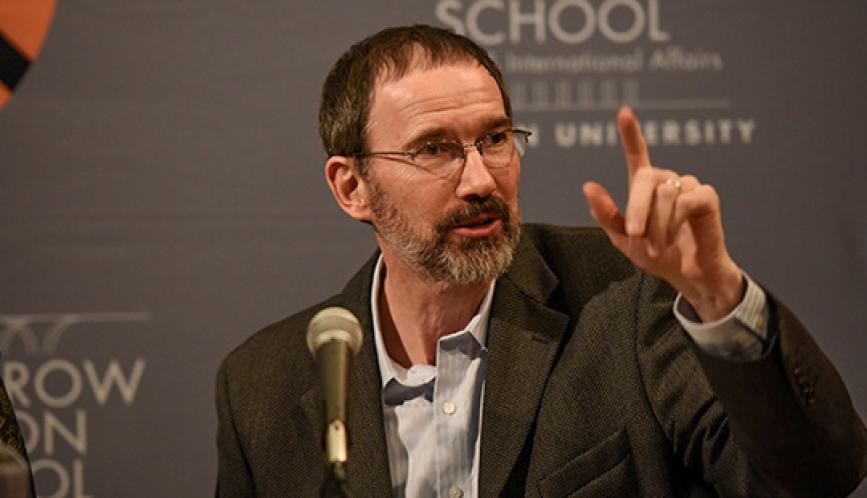MIP network member Marc Fleurbaey is Robert E. Kuenne Professor in Economics and Humanistic Studies, and Professor of Public Affairs and the University Center for Human Values at Princeton University. His research interests include welfare economics, social choice theory, well-being, public economics, and climate policy. Fleurbaey has been an economist at INSEE (Paris), a professor of economics at the Universities of Cergy-Pontoise and Pau (France), and a research director at the National Center for Scientific Research (CNRS) in Paris. He has also been a Lachmann Fellow and a visiting professor at the London School of Economics, a research associate at the Center for Operations Research and Econometrics (CORE, Louvain-la-Neuve) and the Institute for Public Economics (IDEP, Marseilles), and a visiting researcher at Oxford. His research on normative and public economics and theories of distributive justice has focused in particular on the analysis of equality of opportunity and responsibility-sensitive egalitarianism and on seeking solutions to famous impossibilities of social choice theory.
Describe your area of study and how it relates to current policy discussions surrounding inequality.
Here are some topics I have been working on:
- Introducing fairness considerations (such as whether individuals have legitimate endowments, or should be held responsible for their preferences) in the measurement of well-being, inequalities, and the design of optimal taxes.
- Building a methodology for determining equity weights in cost-benefit analysis. Such weights are important to translate our concern for inequalities into practical decision-making tools for policy-makers.
- Taking account in income inequalities in the analysis of climate mitigation policy. This is an important issue because if, as it likely, climate impacts will affect the poor more severely than the rich, even within each country, this reinforces the need for curbing CO2 emissions.
- Analyzing the quality of social relations as a locus of inequalities. I am just beginning to study this topic. While inequalities in resources (income, wealth, human capital, health) are obviously important, social interactions have strong effects on self-respect and should not be neglected.
What areas in the study of inequality are most in need of new research?
It is hard to propose an order of priority, but here are some important topics on which we do not know enough:
- Defining a methodology for decomposing inequalities into the contribution of different causes. The literature on the measurement of unequal opportunities, which has been developing quickly, depends on the selection of particular observable variables that are used to cluster people into different groups of circumstances. It would be more interesting to have a sound methodology for measuring the quantitative importance of the various causal variables.
- Inequality within households. There are strong inequalities, especially between genders, but also between generations in some countries. There is interesting work done on intra-household distribution, it would be great to systematize it.
- Inequality in power. Finding a way (in theory and empirically) to measure who controls what to what extent would be great. We know that inequalities in resources feed a vicious circle whereby the rich capture power in various spheres, including politics. Analyzing these mechanisms with good understanding of the distribution of power would be most interesting.
What advice do you have for emerging scholars in your field?
This is unfortunately a great time to study inequalities, because there is growing concern about them. Given how multi-dimensional inequalities are, my advice would be to ignore discipline boundaries and focus on topics and issues, drawing inspiration and competence from whatever field and discipline is most expert and useful fo the question at hand.



